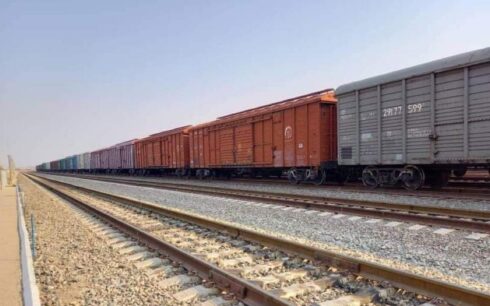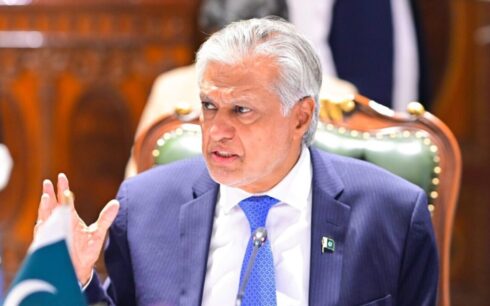ASTANA — The construction of the Qosh Tepa irrigation canal may reduce water flowing to Central Asian countries and exacerbate the region’s environmental crisis, Kazakh officials said Thursday during an international water security conference in Astana.
As Afghanistan moves ahead with the construction of the Qosh Tepa Canal, concerns are growing that the diversion of water from the Amu Darya River — a major transboundary water source — could significantly impact downstream countries.
Speaking at the ARAL Summit, Kazakh Vice Minister of Water Resources and Irrigation Aslan Abdraimov warned that Afghanistan may divert as much as 30 percent of the Amu Darya’s flow, which could reduce water supplies not only to Turkmenistan and Uzbekistan, but also to Kazakhstan through the connected Syr Darya River.
“In the long term, we understand there will be a decrease in the Syr Darya River’s flow,” Abdraimov said. “This will affect our long-suffering Aral Sea.”
Although Kazakhstan does not directly border Afghanistan, officials said the ripple effect could severely strain water security across the region.
“We understand that the volume of water Afghanistan will take will have a downstream impact,” he added.
Regional alarm over water diversion
Azamatkhan Amirtayev, chairman of Kazakhstan’s Baitaq Party, echoed those concerns, stating that the redistribution of water toward Afghanistan’s canal could prompt Uzbekistan to increase its own reliance on the Syr Darya, further reducing what reaches Kazakhstan.
“If 25 to 50 percent of the Amu Darya is diverted, Uzbekistan and Turkmenistan will receive less water,” Amirtayev said. “That could result in a 30 to 40 percent reduction in Syr Darya flow to Kazakhstan. We are facing a potential environmental and humanitarian crisis.”
Amirtayev emphasized that the issue demands cooperation, not confrontation.
“This is not about criticism,” he said. “We are gathering both domestic and international experts to find a constructive solution.”
The remarks came during the “Water Security and Trans-Border Water Use: Challenges and Solutions” conference, a high-level gathering aimed at finding joint strategies for managing shrinking water supplies and preventing ecological collapse.
Representatives from Taliban, Turkmenistan, Tajikistan, Kyrgyzstan, Türkiye, Israel and other nations attended the summit, which also seeks to develop practical mechanisms for equitable water use across Central Asia.
With the Aral Sea — once among the world’s largest lakes — already decimated by decades of over-irrigation and mismanagement, experts say the region cannot afford another major disruption to its fragile water system.
According to Kazakh news agencies, officials say only a coordinated regional response can prevent a worsening crisis as climate change and new infrastructure projects like the Qosh Tepa Canal increase pressure on finite water resources.





